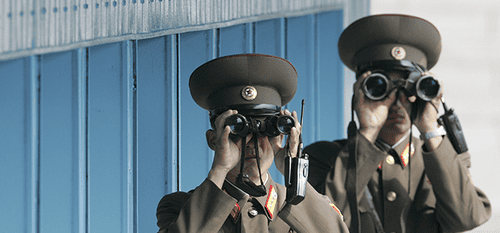The Koreas had a successful diplomatic meeting in January, announcing joint activities around the Winter Olympic Games taking place in the South.
South Korea is pursuing a new diplomatic strategy with North Korea in order to rebuild mutual trust, confront the nuclear weapon crisis and explore possibilities for cooperation on the peninsula. Consequently, the Koreas had a successful diplomatic meeting in January, announcing joint activities around the Winter Olympic Games taking place in the South. As symbolically important as marching under a united flag might be, the more substantive results involved a call for further diplomatic talks and reinstatement of a military-to-military hotline.

Repercussions from the new dialogue travel far from the ceasefire line. Since US President Donald Trump took office, his administration has adopted a hawkish approach toward North Korea, including strengthening economic sanctions, pressuring Chinese leaders to reduce economic support for the hermit nation and working with South Korea to build military and economic coalitions. Seoul’s new approach reflects the growing frustration with American diplomacy and a need for regional concessions to reconcile with the North.
South Korean President Moon Jae-In’s new diplomatic efforts received mixed reactions at home. While the older generation with strong family and economic ties to the North supports reunification talks, younger South Koreans see the North’s hostile behavior a sign it has no desire for cross-border dialogue. Pyongyang has attracted a degree of skepticism among statecraft experts, too. Testing Kim’s willingness to engage with the South and forego provocations through the Olympics makes sense, but bribing Pyongyang in exchange for ‘good’ behavior would be a mistake,” says Daniel Russel, diplomat-in-residence at the Asia Society Policy Institute.
South Korea’s new overtures to Kim are part of a broader regional diplomatic initiative. Moon visited China, a North Korean ally and key trading partner, in December 2017, and called for better South Korea-China relations. Inter-Korea bilateral trade is at its lowest point in years, and both governments recognize the potential economic benefits of diplomatic dialogue. One immediate business opportunity is the reopening of the Kaesong industrial complex north of the Demilitarized Zone in order to mobilize bilateral trade between the states.



